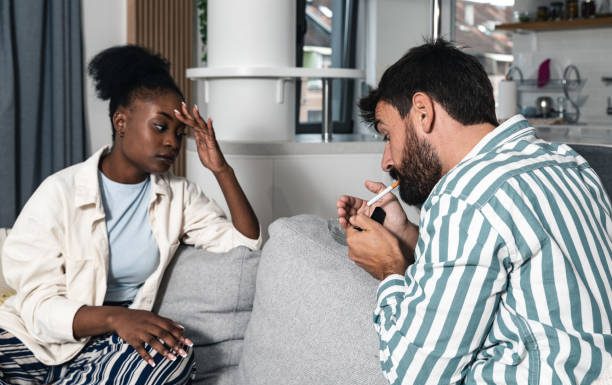As we celebrate love and connections this Valentine’s Day, the best gift that you can give your loved ones is the gift of health. Today, let’s delve into a topic that’s close to the heart of Dr Sharon Nyatsanza, deputy director of the National Council Against Smoking, a member organisation of the Protect Our Next initiative.
Dr Nyatsanza is a vocal advocate against smoking, with a particular focus on the dangers of secondhand smoke. She highlights the risks non-smokers face when exposed to secondhand smoke.
“Smoking doesn’t just affect the smoker. It also impacts those nearest to them – their partners, family and children. Secondhand smoke can lead to a host of health issues in non-smokers, including heart disease, stroke, and lung cancer.
For children, the effects are even more severe, leading to respiratory infections, asthma attacks, and a higher risk of sudden infant death syndrome.”
Secondhand smoke has a significant impact on women’s health, with numerous studies highlighting its damaging effects, explains Dr Nyatsanza.
Secondhand smoking warning by WHO
According to the World Health Organisation (WHO), tobacco use and secondhand smoke exposure can hurt your reproductive health, causing complications during pregnancy.
“Women exposed to secondhand smoke may experience lower mood, sleep disorders, and depression. [This] indicates that [smoking] endangers mental health as well as physical health,” says Dr Nyatsanza.
“Babies and young children whose mothers are exposed to secondhand smoke face their own set of risks. Because their bodies are still growing, they are particularly vulnerable to the harmful effects of secondhand smoke.”
Nyatsanza says the new Tobacco Products and Electronic Delivery Systems Control Bill, approved to go before parliament, offers hope for a healthier future for all South Africans. “One of the key provisions of the new bill is the regulation of 100% smoke-free spaces. This means that public places like restaurants, workplaces, and even certain outdoor areas will be free from clouds of secondhand smoke. Not only will this protect non-smokers, but it will also make it easier for those trying to quit smoking, by reducing their exposure to triggers.”
Exposing children to tobacco
Smoking in enclosed common areas of multi-unit residences and other areas where it interferes with the enjoyment of people lawfully on the premises is prohibited by the new Bill, as is smoking in private dwellings used for any commercial childcare activities, child stay, schooling and tutoring. Smoking in places used for domestic employment or otherwise as a workplace is also prohibited. Smoking in a car when an under-18 child or a non-smoker is in the vehicle will be illegal.

Secondhand smoke is a major health risk, and the South Africa Global Adult Tobacco Survey (GATS-SA) shows just how many South Africans are exposed, says Dr Catherine Egbe, Specialist Scientist at the South African Medical Research Council (SAMRC).
“About one in ten people are exposed to second-hand smoke at work and nearly one in five people at home. Women are mostly exposed at home, while very few have the power to make their homes smoke-free.”
Egbe says an alarming 74.4% of people are exposed at bars, taverns, or nightclubs, and 10.8% at restaurants. A concerningly high percentage of non-smokers are exposed at educational institutions, with 20% of people exposed in schools.
Pledge your support for the new Bill at www.protectournext.co.za
There is a strong awareness of the dangers of smoking among South Africans. Nine out of 10 South Africans believe that smoking or breathing other people’s smoke can cause serious illnesses. The majority support these smoke-free measures. You can pledge your support for the new Bill at www.protectournext.co.za.
“Let’s support the Tobacco Control Bill and embrace the changes it will bring as we strive for a smoke-free South Africa,” says Dr Nyatsanza.
“Staying tobacco-free is not just a gift to your loved ones, but also to yourself. After all, a healthier you means more years of love, laughter, and shared moments with those you hold dear.”
Nyatsanza says the National Council Against Smoking offers many resources to support your journey to a smoke-free life. From personalised quit plans to one-on-one counselling, they provide the tools to help you break free from nicotine addiction.
“Tap into the support groups to increase your chances of quitting successfully. The time to liberate yourself from the shackles of smoking is today.”
Those wishing to quit can visit National Council Against Smoking website or call Quitline at 011 720 3145. You can also reach the council via WhatsApp on 072 766 4812. – Connect Media
Visit SW YouTube Channel for our video content
#QuitForLove #SmokeFreeValentine #ProtectOurNext



